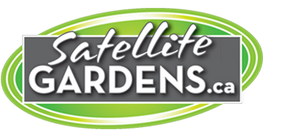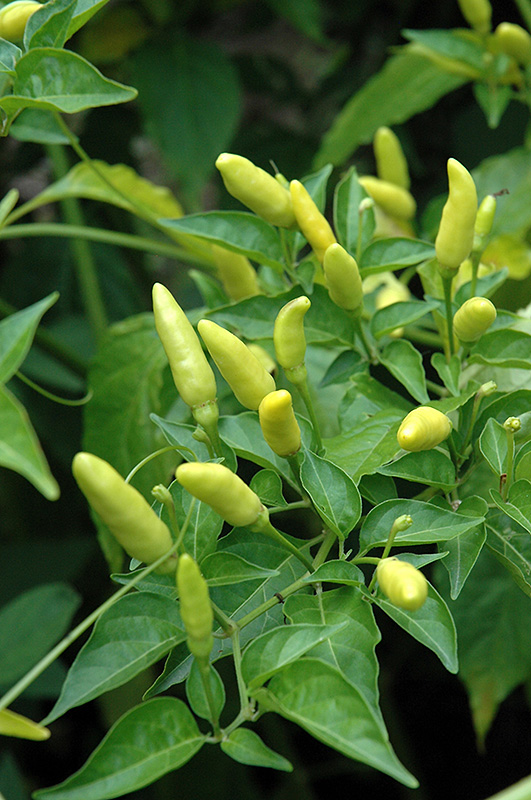Tabasco Pepper
Capsicum frutescens 'Tabasco'
Height: 3 feet
Spread: 24 inches
Sunlight:
![]()
Hardiness Zone: (annual)
Other Names: Chili Pepper
Description:
This excellent variety produces loads of upright, juicy peppers that emerge butter yellow then progress to orange, then red; best known for its use in sauces and as a culinary spice; great for containers
Edible Qualities
Tabasco Pepper is an annual vegetable plant that is commonly grown for its edible qualities, although it does have ornamental merits as well. It produces yellow narrow peppers (which are technically 'berries') with orange variegation which are usually ready for picking from mid summer to early fall. The fruit will often fade to red over time. The peppers have a hot taste and a crisp texture.
The peppers are most often used in the following ways:
- Cooking
- Baking
- Drying
- Seasoning
- Sauces
Planting & Growing
Tabasco Pepper will grow to be about 3 feet tall at maturity, with a spread of 24 inches. This vegetable plant is an annual, which means that it will grow for one season in your garden and then die after producing a crop.
This plant can be integrated into a landscape or flower garden by creative gardeners, but is usually grown in a designated vegetable garden. It should only be grown in full sunlight. It is very adaptable to both dry and moist growing conditions, but will not tolerate any standing water. It is not particular as to soil type or pH. It is somewhat tolerant of urban pollution. This is a selected variety of a species not originally from North America.
Tabasco Pepper is a good choice for the vegetable garden, but it is also well-suited for use in outdoor containers and hanging baskets. With its upright habit of growth, it is best suited for use as a 'thriller' in the 'spiller-thriller-filler' container combination; plant it near the center of the pot, surrounded by smaller plants and those that spill over the edges. It is even sizeable enough that it can be grown alone in a suitable container. Note that when growing plants in outdoor containers and baskets, they may require more frequent waterings than they would in the yard or garden.

